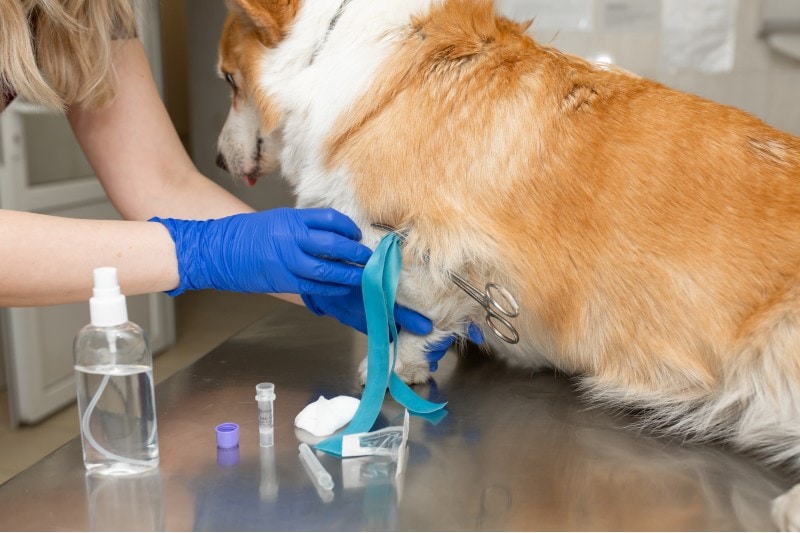Annual vaccines, also known as boosters, are absolutely necessary to prevent your dog from contracting a range of different diseases—some of them deadly. While not all vaccinations need annual boosters, some of them do. Other vaccinations may need to be redone on different schedules (and these boosters shouldn’t be missed, either).
There is no evidence that boosters may potentially harm a dog. On the other hand, skipping boosters can put your dog at risk. Therefore, there is little reason to avoid them.
Vaccine Scheduling
The schedule for vaccinations can vary, so discussion with your vet is best. In some instances, titres may be an option to consider, however these tests may not be all that accurate, either. The test measures the antibody levels in your dog’s blood; but it also may not accurately reflect true immunity.
For this reason, many dog owners simply decide to follow the schedule. It is cheaper and less stressful for the dog in most cases. There is little to no risk of re-vaccinating a bit too early, either.
Luckily, government agencies are very strict with vaccination guidelines for dogs. Therefore, the vaccinations on the market have little to no side effects (and no major side effects).

Can You Give Your Dog a Single Booster?
Most vaccinations protect against multiple diseases. This setup lowers the number of vaccinations your dog needs, which helps lower the price and stress of your dog. Sometimes, vaccinations covering only a single disease may not even be available. Plus, if your dog needs multiple vaccinations, choosing single-disease vaccines means that your dog will get many more injections.
Do All Vaccinations Need Annual Boosters?
Not all vaccinations need to be boosted annually. Instead, some vaccinations can be administered on a 3-year schedule. Sometimes, vets may recommend 3-year schedules for dogs with low-risk lifestyles. However, only certain vaccinations fall into this category.
Furthermore, choosing a 3-year schedule isn’t always the “official” way to use the vaccine. In other words, it isn’t the schedule provided by the manufacturer of the vaccination. In these cases, the vaccine may not meet the legal requirements in your area for vaccination when spread out every 3 years. Therefore, it’s important to understand your area’s laws to ensure that your dog is correctly vaccinated.

Advantages of Annual Vaccinations

There are many reasons why you should get your dog vaccinated every year. The primary reason is to ensure your dog is protected from serious diseases. Many vaccinations only work for a year or just over a year. Therefore, a new vaccine is needed annually to keep your dog protected.
Vaccinating annually may be required in some areas, especially for conditions like rabies. Not following these laws can get you and your dog in serious trouble. Therefore, we highly recommend following any vaccination laws in your area.
Final Thoughts
Annual vaccinations are often recommended. However, that doesn’t mean that they are absolutely necessary in all cases. Dogs react to vaccinations differently. Some may stay immune to the disease after being vaccinated once. However, others may need to be regularly re-vaccinated throughout their life.
Checking to see if a dog is still immune is complicated, expensive, and not always accurate. Therefore, having dogs on an annual schedule is often recommended. This way, your dog can skip the extra pokes, you can save money, and your dog remains immune. There aren’t downfalls to vaccinating dogs at this regularity, either.
Featured Image Credit: Syda Productions, Shutterstock












